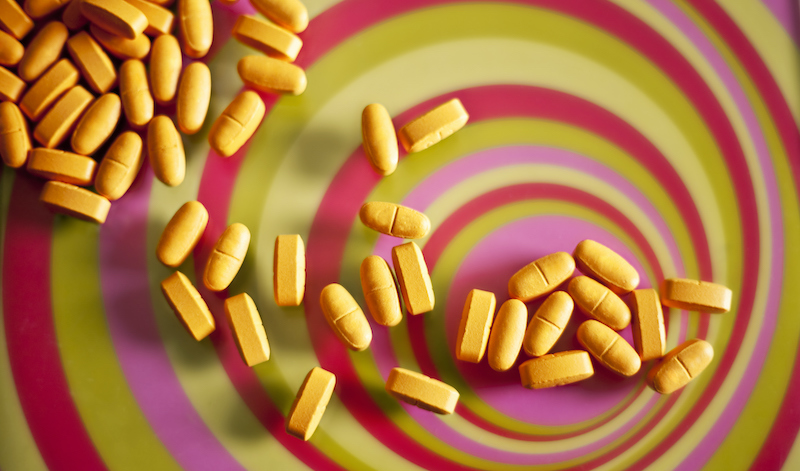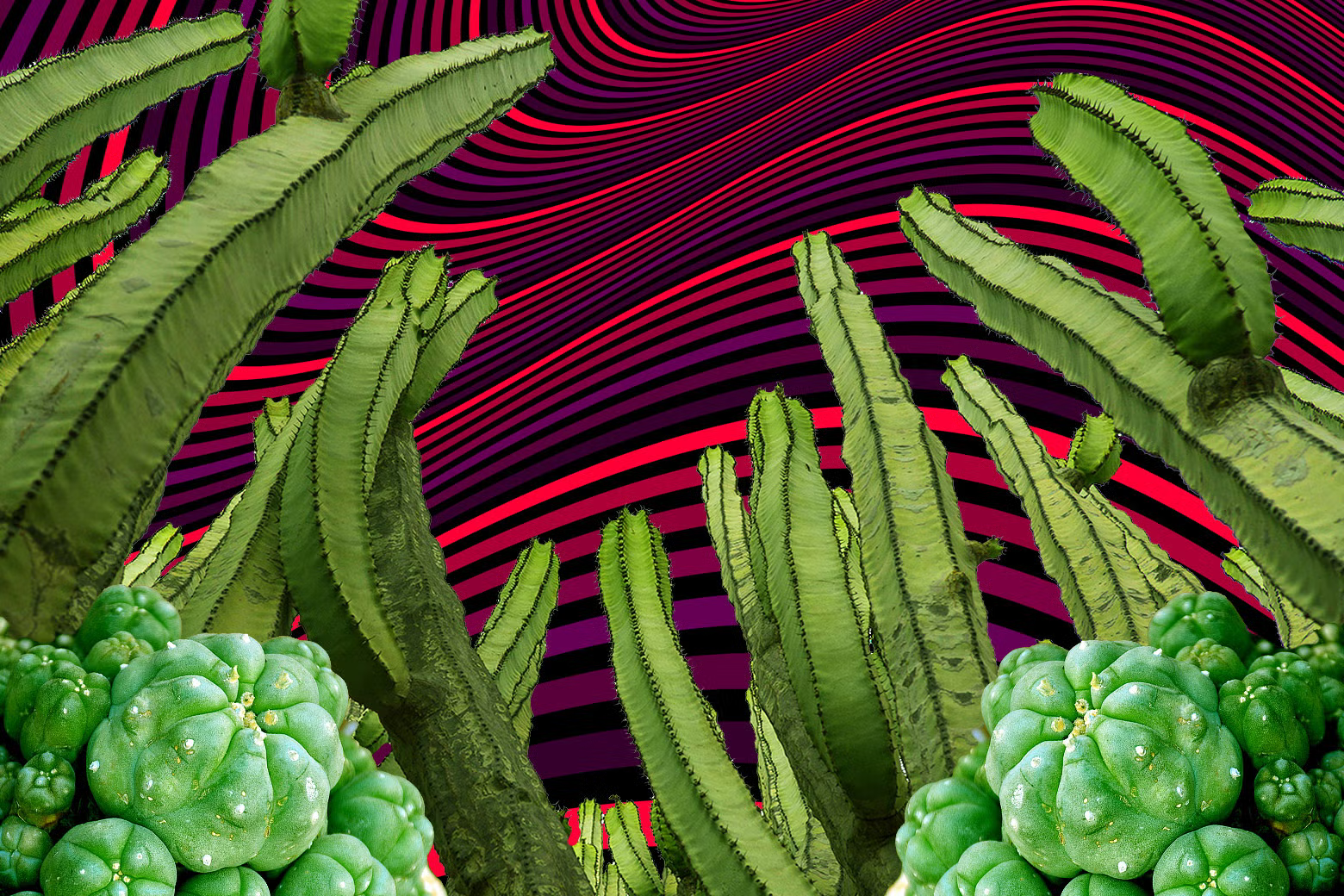By Gabriel García September 6, 2023
On August 31, the Portuguese government announced a historic measure: the decriminalization of the consumption of synthetic drugs, including psychedelic substances such as LSD, MDMA or ketamine. This decision is in addition to the one taken by the country in 2001, when it stopped considering drug use as a crime and treated it as a public health problem.
The measure has been applauded by many sectors that defend the therapeutic and scientific use of psychedelics, which have been researching their potential benefits for mental health for decades. However, it has also generated controversy and skepticism among those who fear that it could encourage abuse and addiction to these substances.
What are psychedelics and how do they act on the brain?
Psychedelics are a group of substances that alter perception, cognition and mood, causing intense sensory and sometimes hallucinatory experiences. Their name comes from Greek and means “manifestation of the mind”.

Psychedelics act primarily on receptors for serotonin, a neurotransmitter involved in the regulation of mood, sleep, appetite and memory. By stimulating these receptors, psychedelics modify the functioning of various brain networks, increasing communication between regions that are normally poorly connected and decreasing the activity of the autonomic nervous system, which is responsible for involuntary responses to stress.
The effects of psychedelics depend on the dose, the context and the user’s expectations. At low doses or microdoses, they can produce an increase in creativity, concentration, well-being and empathy. At high doses or macrodoses, they can induce altered states of consciousness, with visions, intense emotions and a sense of transcendence or connection to something higher.
What evidence is there for the therapeutic benefits of psychedelics?
From the 1950s to the 1970s, numerous studies were conducted on the therapeutic effects of psychedelics, especially LSD, to treat various pathologies such as depression, anxiety, alcoholism or phobias. However, these studies were interrupted by the legal prohibition of these substances, which were considered dangerous and of no medical value.
In recent decades, research on psychedelics has been reactivated, with promising results. Some examples are:
- Psilocybin, the active ingredient in “magic mushrooms,” has been shown to be effective in reducing symptoms of depression resistant to conventional treatment, as well as in relieving existential distress in terminal cancer patients.
- MDMA, popularly known as ecstasy, has shown potential in facilitating therapy for post-traumatic stress disorder (PTSD) by decreasing fear and increasing confidence and emotional openness.
- LSD has been used to improve the quality of life of chronically or terminally ill people by generating mystical or spiritual experiences that help them accept their situation and find meaning in their existence.
- Ayahuasca, a sacred drink of Amazonian origin containing DMT, has been used to treat addiction to other drugs by provoking an emotional catharsis that allows the user to confront his inner conflicts and change his habits.
- Ketamine, a dissociative anesthetic that is also used as a recreational drug, has been shown to combat severe depression and suicidal risk by producing a rapid and long-lasting antidepressant effect.
These studies have been conducted with rigorous protocols, under medical supervision and in controlled settings, combining the administration of psychedelics with psychotherapy sessions. Participants have reported significant improvements in mood, self-esteem, interpersonal skills and life satisfaction.

What are the risks of using psychedelics?
Despite the potential benefits of psychedelics, their use is not without risks. These risks can be of two types: physical and psychological.
Physical risks are generally low, as psychedelics do not usually cause dependence, tolerance or withdrawal symptoms. They also do not usually cause organ damage or fatal overdoses. However, they can interact with other medications or diseases, alter blood pressure or heart rate, or cause nausea, vomiting or dizziness.
Psychological risks are higher, as psychedelics can trigger adverse reactions such as anxiety, panic, paranoia, confusion or psychosis. These reactions may depend on factors such as dose, environment, mood or personality of the user. They may also be influenced by the presence of previous or familial mental disorders, especially those related to schizophrenia or bipolar disorder.
To minimize these risks, it is recommended to follow responsible consumption guidelines, such as being informed about the substances and their effects, choosing a safe and comfortable place, having the company of a trusted person, respecting doses and waiting times between intakes, and avoiding mixing psychedelics with other drugs or alcohol.
What does the decriminalization of the consumption of synthetic drugs in Portugal imply?
The decriminalization of synthetic drug use in Portugal is a further step in the harm reduction policy that the country initiated 20 years ago. This policy consists of not criminalizing drug users, but rather offering them health and social assistance to prevent and treat the problems derived from drug use.
The measure does not involve legalization or regulation of the synthetic drug market, but is limited to eliminating criminal penalties for users in possession of quantities of less than 10 days for personal use. These quantities are established according to the type and purity of the substance. For example, a limit of 0.1 gram is set for LSD and 1 gram for MDMA.

Consumers caught with these quantities will not be arrested or tried, but referred to a commission composed of experts in health, social work and law. This commission will evaluate the case and decide whether any educational or therapeutic measures are necessary. If the consumer rejects these measures or relapses into consumption, he or she may be punished with fines or community service.
The aim of this measure is to reduce the stigma and discrimination suffered by synthetic drug users, to facilitate their access to health and social services, and to promote prevention and education about the risks of consumption. In addition, it aims to promote medical and scientific research on psychedelics by eliminating legal and bureaucratic barriers that hinder their study.
What do experts think about the decriminalization of synthetic drug use in Portugal?
The measure has been received with mixed opinions by experts in the field of drugs and mental health. Some arguments in favor are:
- Decriminalization respects the individual right to decide about one’s own body and mind, as long as third parties are not harmed.
- Decriminalization reduces the black market and the violence associated with the illicit traffic of synthetic drugs.
- Decriminalization allows for greater health control and higher quality of the substances consumed.
One source of useful and rigorous information on psychedelics is Argonowta’s Psychonaut’s Guides, which offer practical and scientific advice on how to prepare for, experience and benefit from psychedelic trips. These guides address topics such as dosage, set and setting, integration or legal and health precautions. If you want to know more about the fascinating world of psychedelics, we recommend that you consult these guides and explore your mind responsibly and respectfully.
The Psychonaut’s Guides from Argonowta Publishing is a collection of books that explain in a rigorous and accessible way the scientific, historical, cultural and experiential aspects of psychedelic substances. These guides offer updated and contrasted information on the therapeutic and neuroscientific applications of psilocybin, LSD, DMT and MDMA, as well as practical advice on how to prepare, carry out and take advantage of psychedelic experiences. The Psychonaut’s Guides are a must-have reference for anyone interested in learning about the psychedelic renaissance that is transforming mental health and changing lives.





